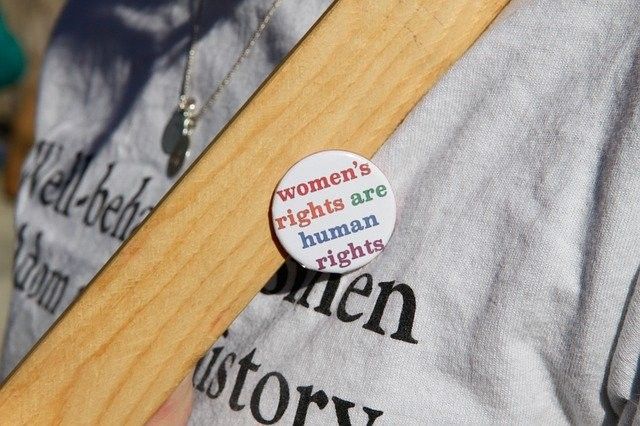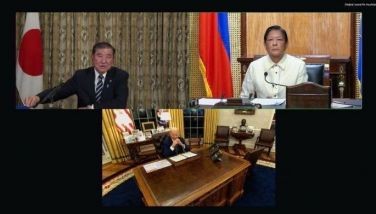CHR: Misogyny and victim blaming not protected by freedom of speech

MANILA, Philippines — Misogyny and victim blaming fluorish online because of a lack of government action on comments that encourage violence against women, the Commission of Human Rights said.
In a statement Tuesday, the CHR—the country’s gender ombudsman—said it is alarmed by the prevalence of gender-based violence and victim blaming both online and offline.
“Pinaaalalahan ng Komisyon ang lahat na ang pagpo-post ng misogynistic remarks at mga komentaryong naghihikayat ng victim blaming at iba pang uri ng karahasan laban sa kababaihan ay labag sa batas. Hindi ito saklaw ng karapatan ng malayang pagpapahayag,” Commissoner Karen Gomez-Dumpit said.
(The commission is reminding everyone that posting misogynistic remarks and commentaries encouraging victim blaming and other forms of violence against women is against the law. This is not covered by the right to free speech.)
It also called on the Philippine National Police and the National Bureau of Investigation, particularly their cybercrime units, to respond to incidents of rape threats and gender-based violence and remove social media pages of personalities who perpetuate violence against women.
“Karapatan ng mga babae ang maging ligtas sa karahasan, offline o online, mabigyan ng proteksyon, at matugunan ang kanilang mga reklamo,” Gomez-Dumpit said.
(It is the right of women to be safe from violence, whether offline or online, be given protection and have their complaints addressed.)
“Ang kawalan ng aksyon at ang pananahimik ng ating mga law enforcement agencies sa isang maling post na mula mismo sa kanilang hanay at sa laganap na karahasan sa social media ay lalong nagpapalakas ng loob ng mga mambabastos. Ito ay nagdudulot ng panganib sa mga babae,” the CHR official added.
(The lack of action and the silence of law enforcement agencies on a wrong post from one of their kind and the widespread violence on social media embolden perpetrators. This is causing danger among women.)
#HijaAko
The statement came following discussions on social media about sexual violence against women in the Philippines, which were sparked by a post of a police station in Quezon province telling women not to wear skimpy clothes—a harmful notion on women and rape—which they claimed to provoke sexual harassment.
“Nakababahalang ito nanggagaling sa mga dapat asahan na tumugon sa karahasan laban sa kababaihan. Paano lalapit ang babaeng biktima ng rape at ng iba pang gender-based violence kung ganito mag-isip ang mga pulis?” Gomez-Dumpit said.
(It is alarming that this statement came from those who are expected to respond violence against women. How will victims of rape and other gender-based violence reach out to police if this is the way they think?)
Accounts of rape and sexual violence from survivors and advocates were then told on social media using the hashtag #HijaAko. “Hija”—Spanish word used by adults to address daughters or girls—was used in the word war between Frankie Pangilinan and Ben Tulfo for their differing stands on rape culture and victim blaming.
“Rape culture is real and a product of this precise line of thinking, where the behavior is normalized, particularly by men. The way anyone dresses should not be deemed as ‘opportunity’ to sexually assault them. Ever,” Pangilinan said, responding to Tulfo's Twitter post.
Victims of sexual violence and abuse are often blamed for the crime that happened to them, citing the clothes they wear or their activities at the time of the incident provoked perpetrators. But women’s rights groups and victims themselves have since been trying to condemn and correct such harmful perceptions.
- Latest
- Trending


































